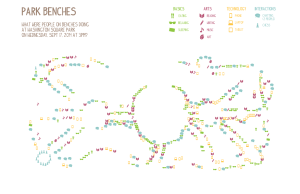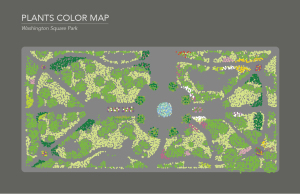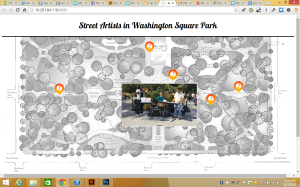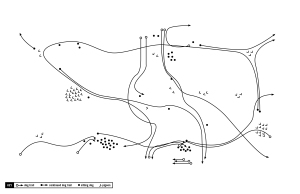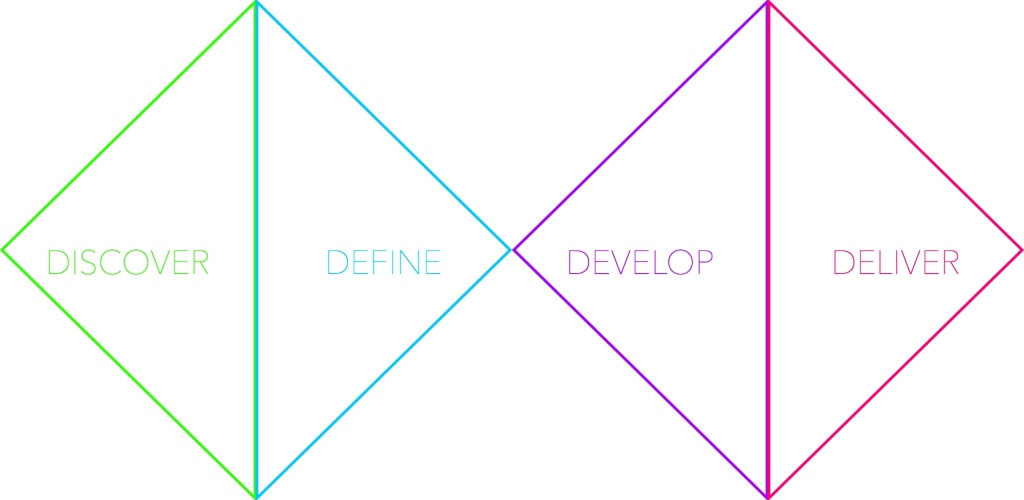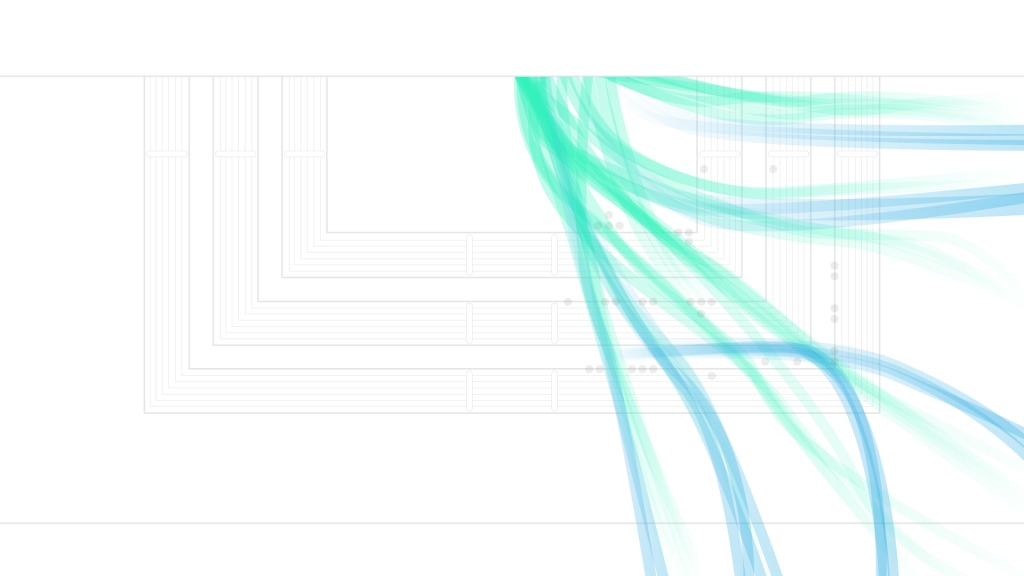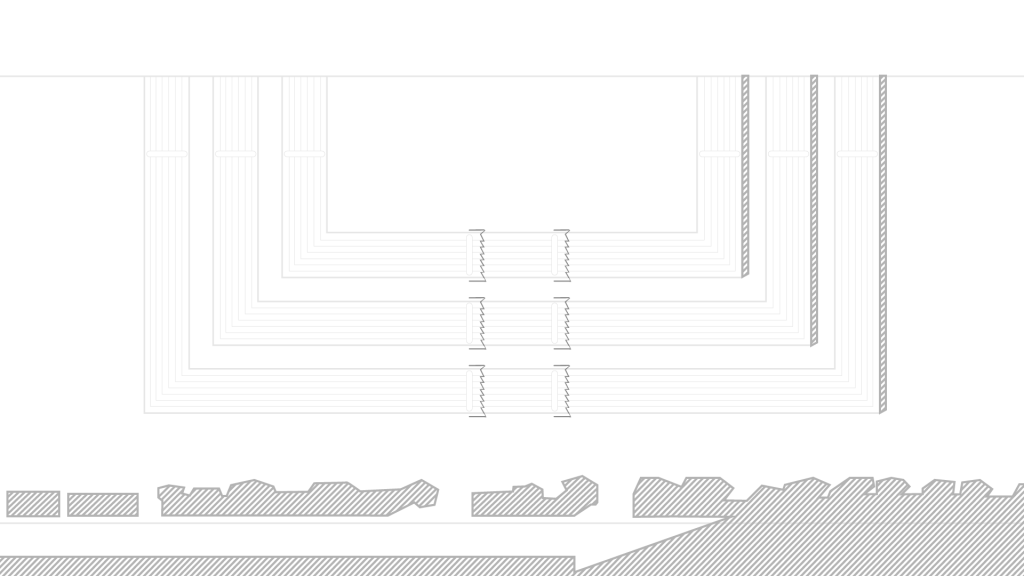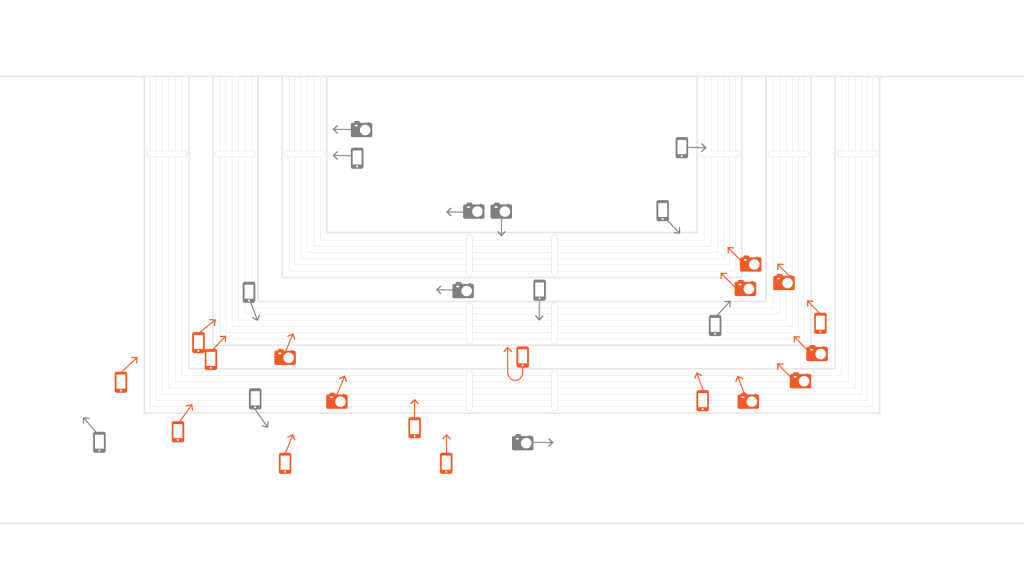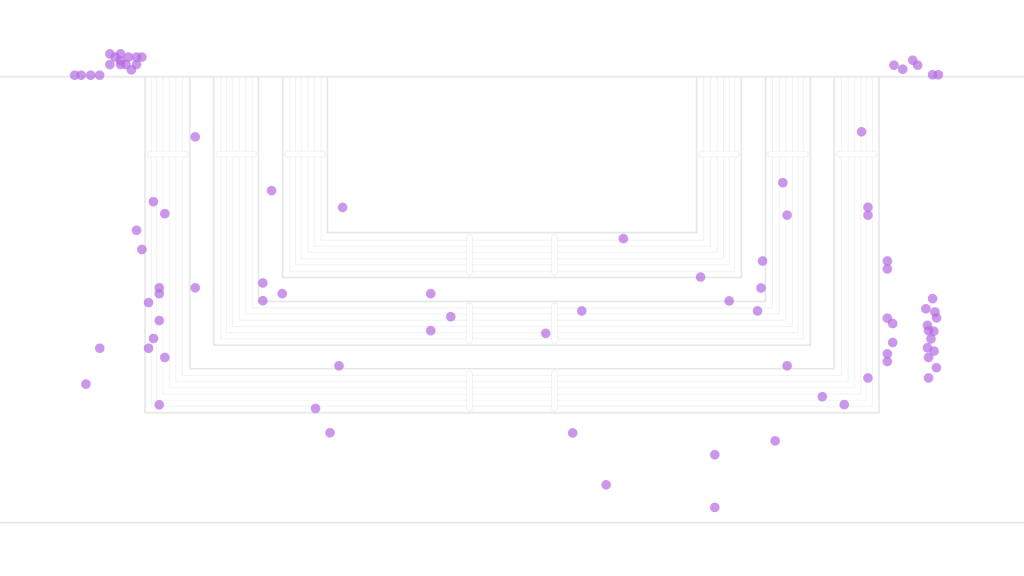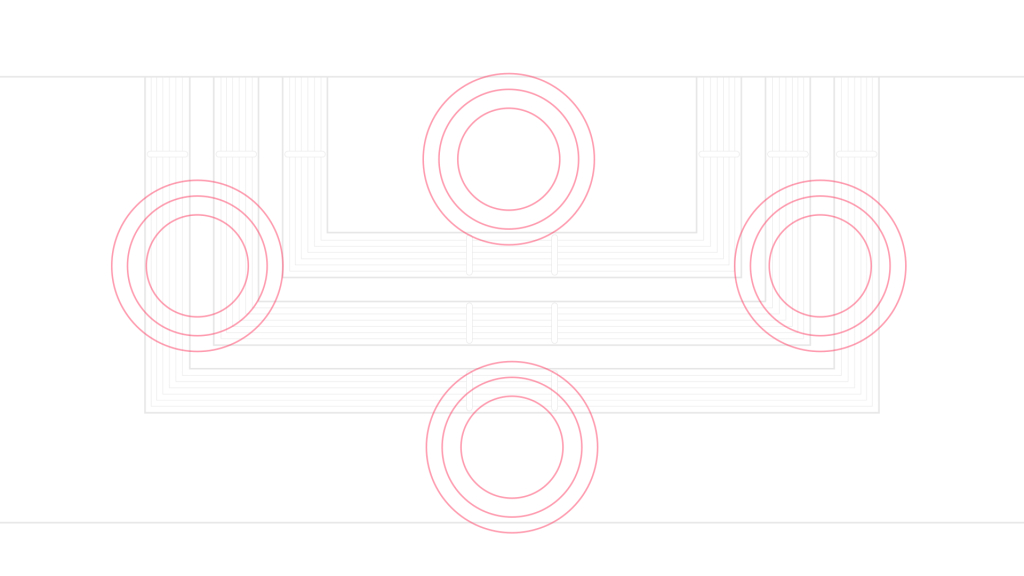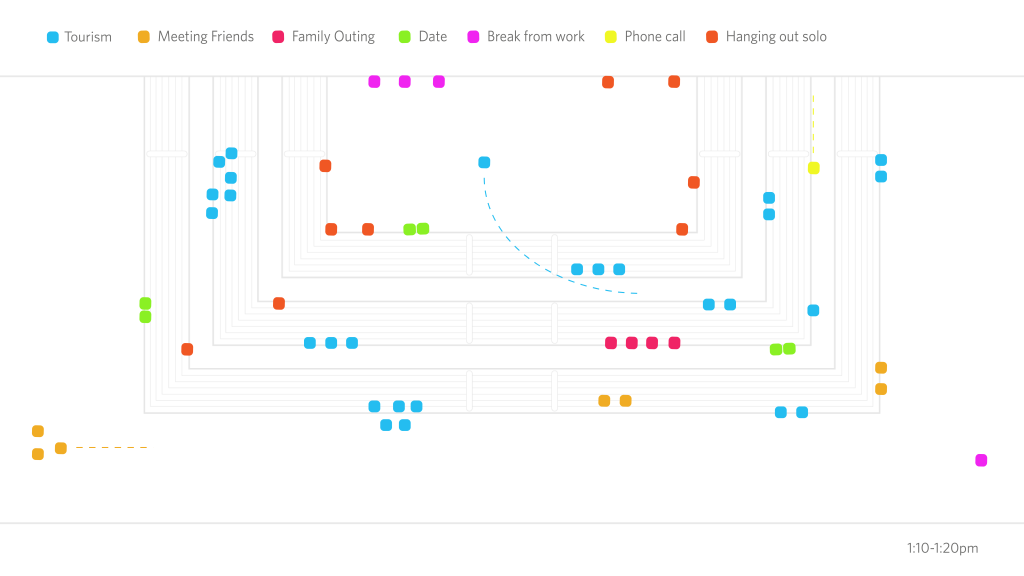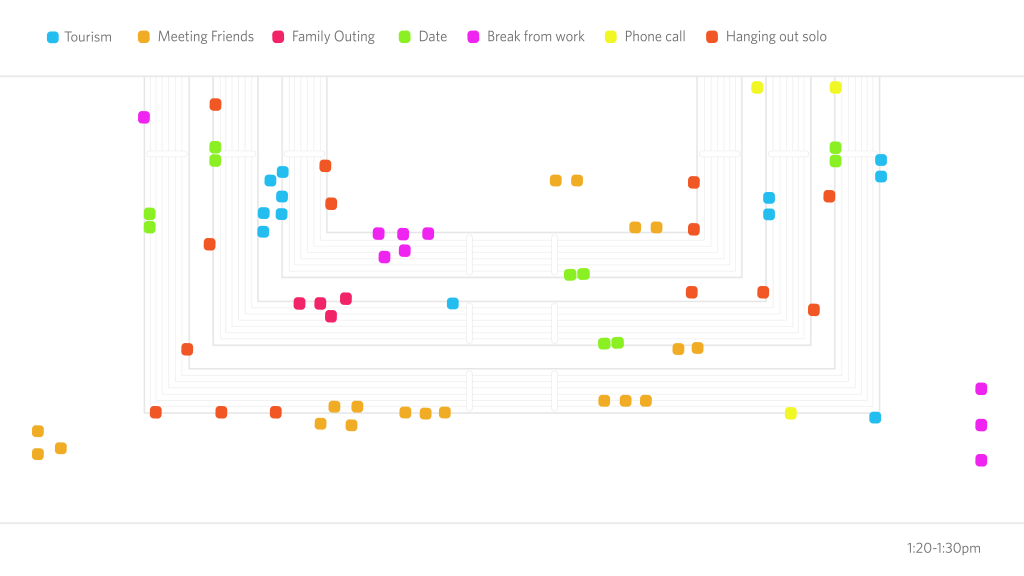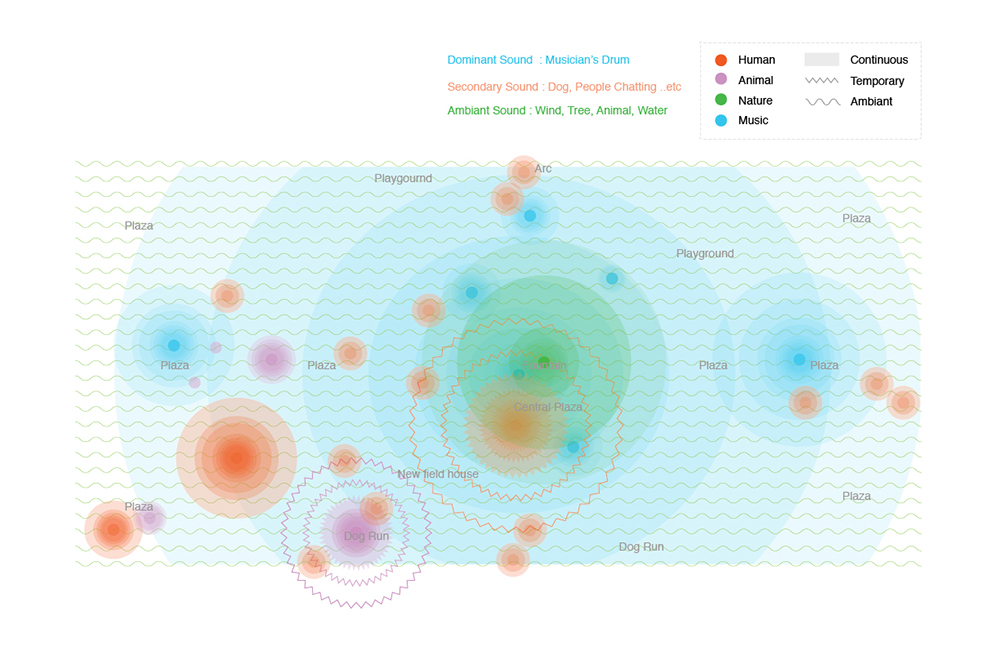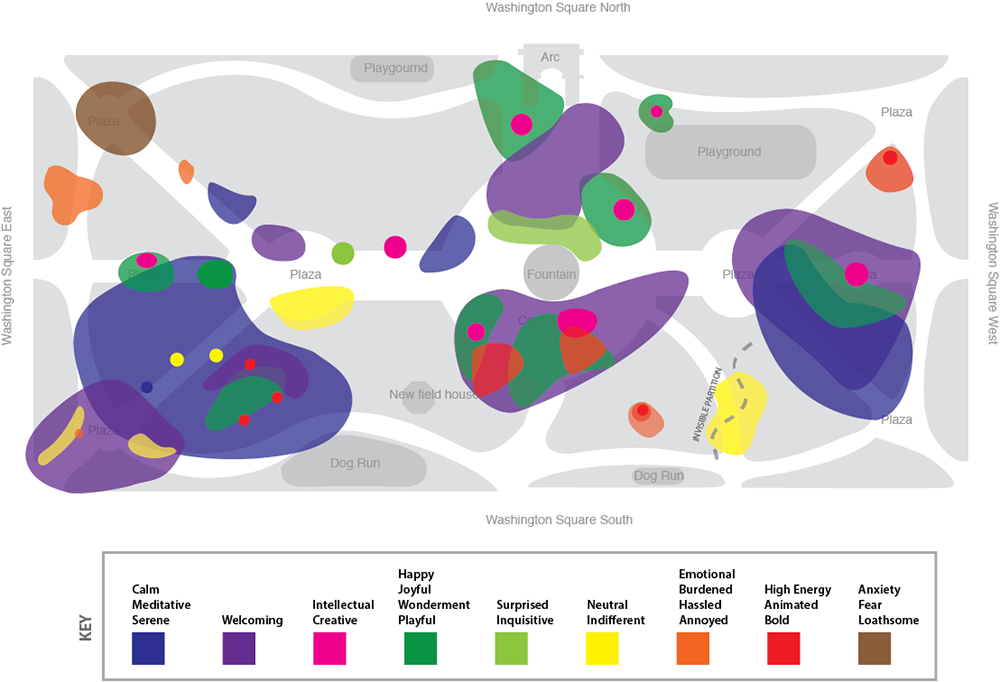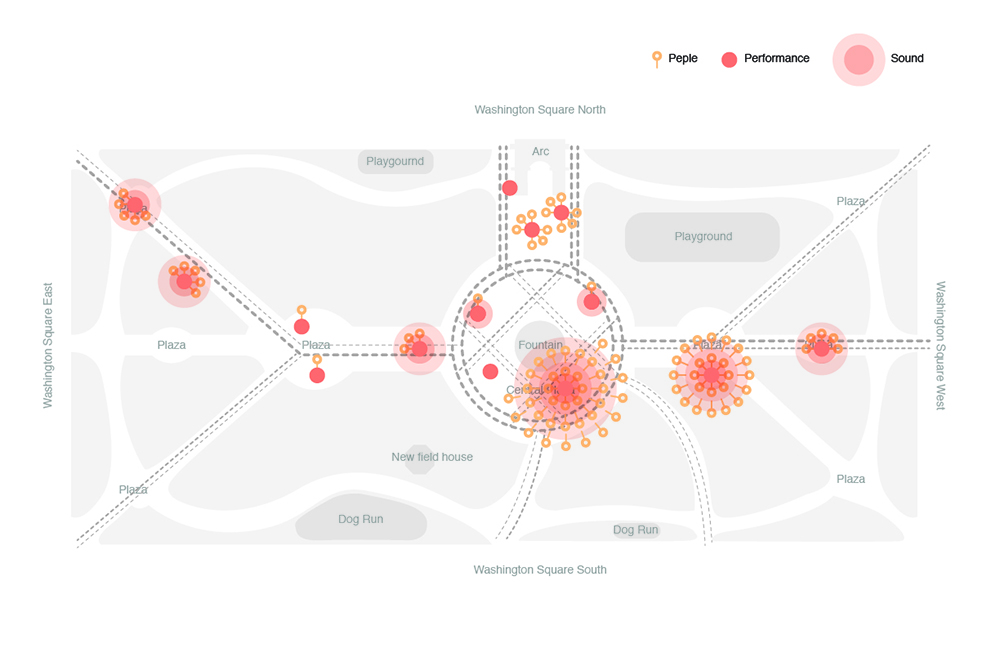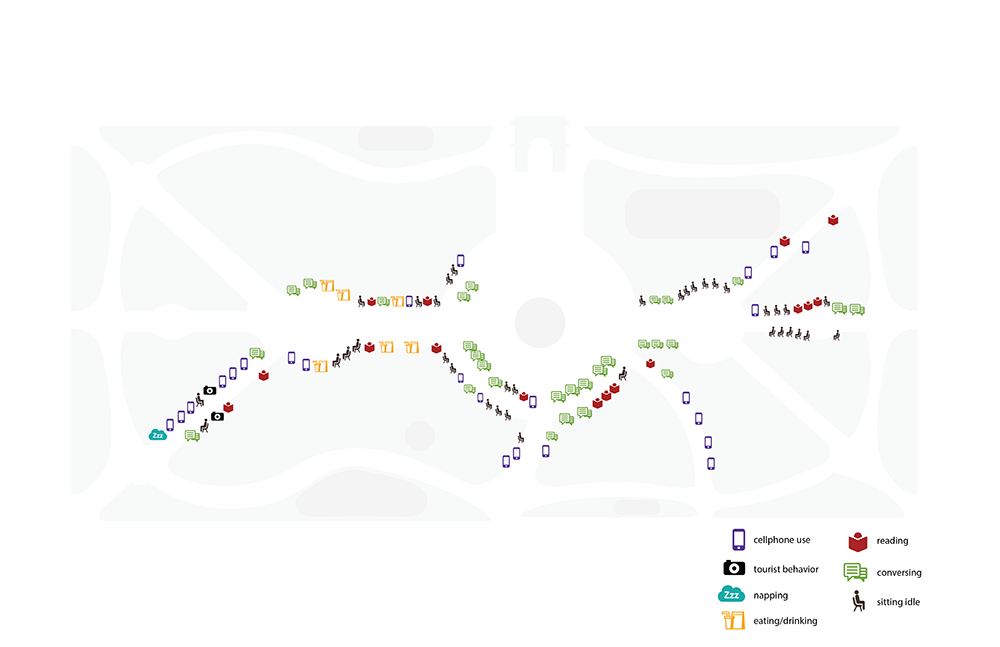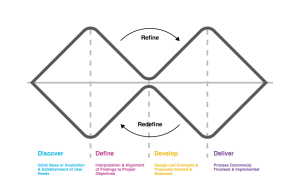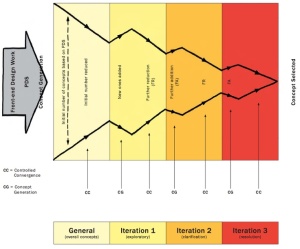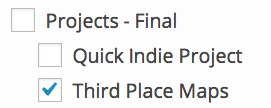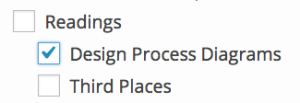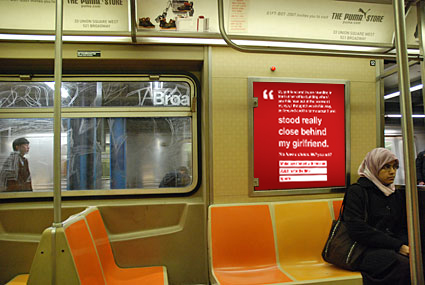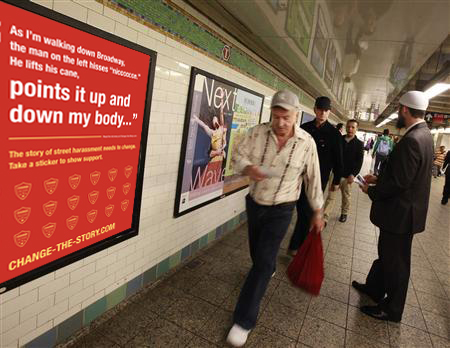Team Amy – Mapping Washington Square Park – (Amy, Sunnie, Melody)
Filed under Third Place Maps, Uncategorized
Design Diamond – Sam W., Trent, Sarah, Mini
Discover
We went wide on thinking of ideas of what to map. Below is the list of ideas:
- Railing Architecture; social elements such as Entering and Exiting styles
- Paths to approach the museum
- Food Vendors; placement and type
- Tables at either end of the plaza
- Differences in width of steps and their affect on paths
- Direction of the sun
- Areas of shade and their effect
- Points for photography
- Direction of approach to the museum (hypothesis: subways have an effect)
- Number of people in each group
- Catalyst, or reason for being on the steps, including meeting with coworkers, meeting friends, studying art
- Age of people
- Location of pigeons
- How people pose for photos, or percentage of selfies
- Soundscape, including the water fountains, road noise, and conversations
- Direction people were facing–forward and in staggered elevations
- Smells, such as mustard, hot dogs, and almonds roasted in sugar
- Tactile effects, such as a rigid sitting style and the feeling of stone
Define
We narrowed in to define what was of interest (our criteria was a bit arbitrary, so there’s a problem with the process)
- Railing Architecture; social elements such as Entering and Exiting styles
- Paths to approach the museum
- Areas of shade and their effect
- Points for photography
- Number of people in each group
- Catalyst, or reason for being on the steps, including meeting with coworkers, meeting friends, studying art
- Location of pigeons
- Soundscape, including the water fountains, road noise, and conversations
Develop
We developed the maps through observation and documentation, followed up by conversation
Deliver
We set to work individually to create the deliverables (without much collaboration, another problem with the model)
Filed under Design Process Diagrams
Steps of Metropolitan Museum of Art
Filed under Third Place Maps
Design Process – Amy, Effy, Melody, Sunnie
Our group was in agreement that the double diamond diagram did a nice job describing the typical design process in general. If we were to modify it, we might add a feedback loop to capture how the process is often not linear. Part of the development process involves using learnings to help redefine project goals and scope. The process becomes a bit more cyclic in the middle:
We then found a really nice visual representation that captured our thinking in Bill Buxton’s Sketching User Interfaces. As you can see, Buxton characterizes the design process in a diamond-like manner with breadth and depth phases. But he also accounts for more iterative cycles throughout:
Looking forward to giving this process a try.
Filed under Design Process Diagrams
Week Two: Third places, public spaces, and building shared experiences
Class recap
We spent the first part of class discussing Oldenburg’s article, Our Vanishing 3rd places, then everyone presented their Quick Indie Projects.
Assignments
- Reading – Everything Sings Intro, Denis Wood
- Assignment – Observe and Document a Third place, present it back to the class through multiple senses. Work in groups, each student responsible for documenting a different sense. Feel free to impair a sense if it helps you focus(blindfold, earplug, big mittens). Compare your observations and create a presentation that represents the information through multiple senses. Use time, or choose another axis to plot your observations against.
- Reading – Double diamond design process. Read these articles and diagram out your version of the design process that you will follow with your team.
How to Post
By 5pm on Monday 9/22, each group should collaboratively create two posts:
1. A collection of maps from the third place observation assignment for the Third Place Maps category
2. A group process diagram for the Design Process Diagrams category
Groups
Amy
Sunnie
Melody
Effy
—
Trent
Sara
Sam W.
Mini
—
Dami
Sneha
Nga
Hanna
—
Leroy
Aastha
Michie
Sam C.
—
Matt
Mike
Jeff
Luke
Mini’s quick indie project
My quick indie project is a project from Urban Fiction class in the Spring of 2013. It is called Change the Story and it main goal is to bring awareness about the street harassment on the street and creating a community of supporters who will not blame the women or the men being abused, but will take an action to change the story of the person being harassed. Street harassments happen often in the subway platform and I think it is important to tell the story so that people will feel empathetic and change their view on the topic.
Filed under Projects, Quick Indie Project

